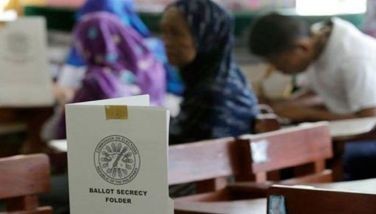Health costs pushing 100 M below poverty line - WHO
MANILA, Philippines – The World Health Organization (WHO) has underscored the “striking inequities” in health outcomes between the rich and the poor, saying the rising costs of health care push more than 100 million people below the poverty line each year.
In its “World Health Report 2008,” WHO assessed the way that health care is organized, financed, and delivered in rich and poor countries around the world.
“The Report sets out a way to tackle inequities and inefficiencies in health care, and its recommendations need to be heeded,” said WHO Director-General Margaret Chan at the launch of the report in Almaty, Kazakhstan yesterday.
Chan cautioned, “A world that is greatly out of balance in matters of health is neither stable nor secure.”
The report commemorates the 30th anniversary of the Alma-Ata International Conference on Primary Health Care held in 1978. The event was the first to place health equity on the international political agenda.
Worldwide, the annual government expenditures on health vary from as little as $20 per person to over $6,000.
For some 5.6 billion people in low and middle-income countries, more than half of all health care spending is through “out-of-pocket payments.”
This means that the patients pay for their own medicines and healthcare, without government support.
“With the costs of health care rising and systems for financial protection in disarray, personal expenditures on health now push more than 100 million people below the poverty line each year,” the report shows.
It is estimated that the difference in life expectancy between the richest and the poorest countries now exceeds 40 years.
The report further shows that of some 136 million women who will give birth this year, around 58 million will not get medical assistance “whatsoever during childbirth and the postpartum period, endangering their lives and that of their infants.”
According to Ann Veneman, executive director of the United Nations Children’s Fund, “high maternal, infant, and under-five mortality often indicates lack of access to basic services such as clean water and sanitation, immunizations and proper nutrition.”
“Primary health care including integrated services at the community level can help improve health and save lives,” Veneman added.
The report revealed that many health systems “have lost their focus on fair access to care, their ability to invest resources wisely, and their capacity to meet the needs and expectations of people, especially in impoverished and marginalized groups.”
It also stated that conditions of inequitable access, impoverishing costs, and erosion of trust in health care constitute a threat to social stability.
“In far too many cases, people who are well-off and generally healthier have the best access to the best care, while the poor are left to fend for themselves,” the report shows.
- Latest
- Trending






























